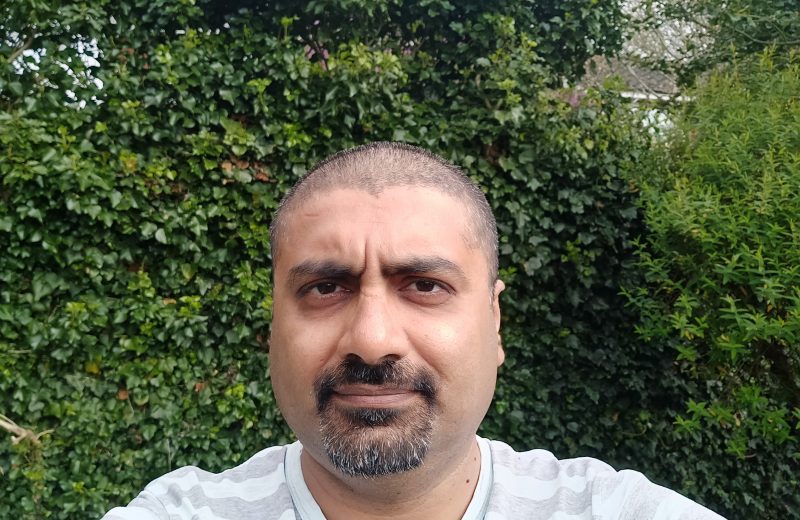Introducing our Head of Mechanistic Proteomics, Professor Shabaz Mohammed
On his first day at the Franklin, we sat down to discuss the work that Shabaz would be doing and why he thinks it was so important.
What will you be working on at the Franklin?
I will be the Head of Mechanistic Proteomics. What this really means is I am more interested in the underlying processes of data generation. A lot of the work will be related to understanding then exploiting technologies for biomolecule characterisation. To make the process objective as possible I take samples created by the Next Generation Chemistry theme without much prior knowledge of what they are looking for and will tell them what is actually in their sample.

I will achieve this using a technique called mass spectrometry and my work is complementary to that already being done in the Franklin’s Biological Mass Spectrometry (BMS) theme. The BMS theme will be looking at improving the mass spec technology, e.g. improving the ionisation of samples, superior ion optics and detectors. Whereas, I will be working on improving the information we can extract from the biomolecules when in the mass spec, I will be looking at the fragmentation of ions. Secondly, I will be look at approaches at increasing the sensitivity of the mass spec experiment through improved chromatography. At the moment, mass spec can handle a significant number of challenges posed by molecular and clinical biology but it struggles with low copy number proteins or low cell numbers. Improving sensitivity through chromatography will be essential for reaching holy grail experiments such as single cell analysis.
What are the potential applications of this work?
Generally, it will allow us to greatly increase our understanding of the reactions and interactions between proteins within a cell or tissues. It would also allow us to better understand how drugs interact within cells and potentially make them more effective.
As we speak, there is for a need to better understand COVID-19. Glycosylation is a key post-translational modification, which involves addition of a range of sugars with a branching pattern to a protein. These convoluted sugar structures have many purposes one of which is to create unique keys for cellular ‘doorway’ proteins. One of the ways virus penetrate into cells is by developing sugar patterns on their surface proteins. Understanding the virus glyco-protein structure could help us in produce a treatment for the virus.
What excites you most about coming to work at the Franklin?
The Franklin has excellent resources, both in terms of people and instrumentation expertise. The model of the institute, where you can work with industry on technologies in a smooth collaboration, energizes me and, I think, is essential for the development of next generation mass spectrometry. The potential for new developments is huge and for me, as a technologists, that is very exciting.
In addition, working at the Franklin I not only have a clear mandate, but also the scope and flexibility to do the work that will allow me to achieve these goals.
This really is work that couldn’t be done anywhere else.
Can you tell me about your background?
I started out as a synthetic chemist, getting my Masters from the University of Manchester. After learning I wasn’t keen on industry through a sandwich year I found my calling in mass spectrometry in which I carried out a PhD also in Manchester.
I then started working in protein chemistry and then eventually proteomics – first during my post-doc in Denmark, and then I continued this research when I started my own research group in The Netherlands.
I decided to come back to the UK and started working at the University of Oxford, which was when I first collaborated with Professor Ben Davies. I really enjoyed working with Ben, as I liked the challenge of identifying and characterising his new exotic molecules. I am pleased to be able to continue this work at the Franklin.
What drew you to working in this intersection between chemistry and biology?
The common threads of my work have always between biology, proteins and physics.
My PhD supervisor used to tell me not to bother doing anything that wouldn’t be useful to someone else. This led me to being interested in working with biologists to help solve some of these big life science questions.
